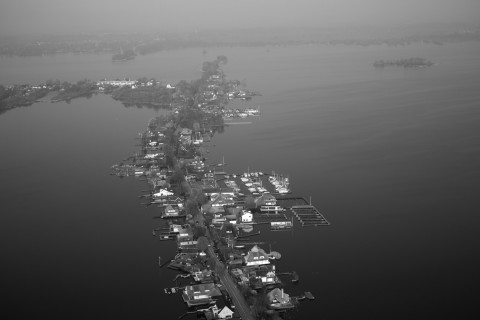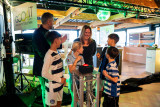We weten dat het klimaat aan het veranderen is en we weten dat het daarom warmer, natter én droger wordt. Maar we weten niet wanneer of waar het hoe warm wordt of hoeveel regen er op een specifieke dag gaat vallen. Toch kunnen we ondanks deze onzekerheid anticiperen op de meest voor de hand liggende scenario's. Kunnen we door meer ruimte voor de natuur de grootste klappen opvangen? Wat gaat dit betekenen voor de landbouw, voor de woningbouwopgave en de bereikbaarheid van ons land? Tijdens twee afleveringen van Ruimte! Ruimte! Ruimte! duiken we in de wereld van de omgevingsplanning en het anticiperen op klimaatverandering. Wat kunnen we verwachten van deze verandering en hoe ziet Nederland er straks uit? Volgende week kijken we naar de gevolgen voor onze directe leefomgeving en wat we nu al kunnen doen. Deze week beginnen we met het jaar 2120, hoe ziet Nederland er over honderd jaar uit?
Maak plaats voor het klimaat! #1






Om gevolgen voor onze directe leefomgeving in kaart te brengen, moeten we beginnen met METEN van de belangrijkste vervuilings-parameters. Meten aan de bron en bij de burger.